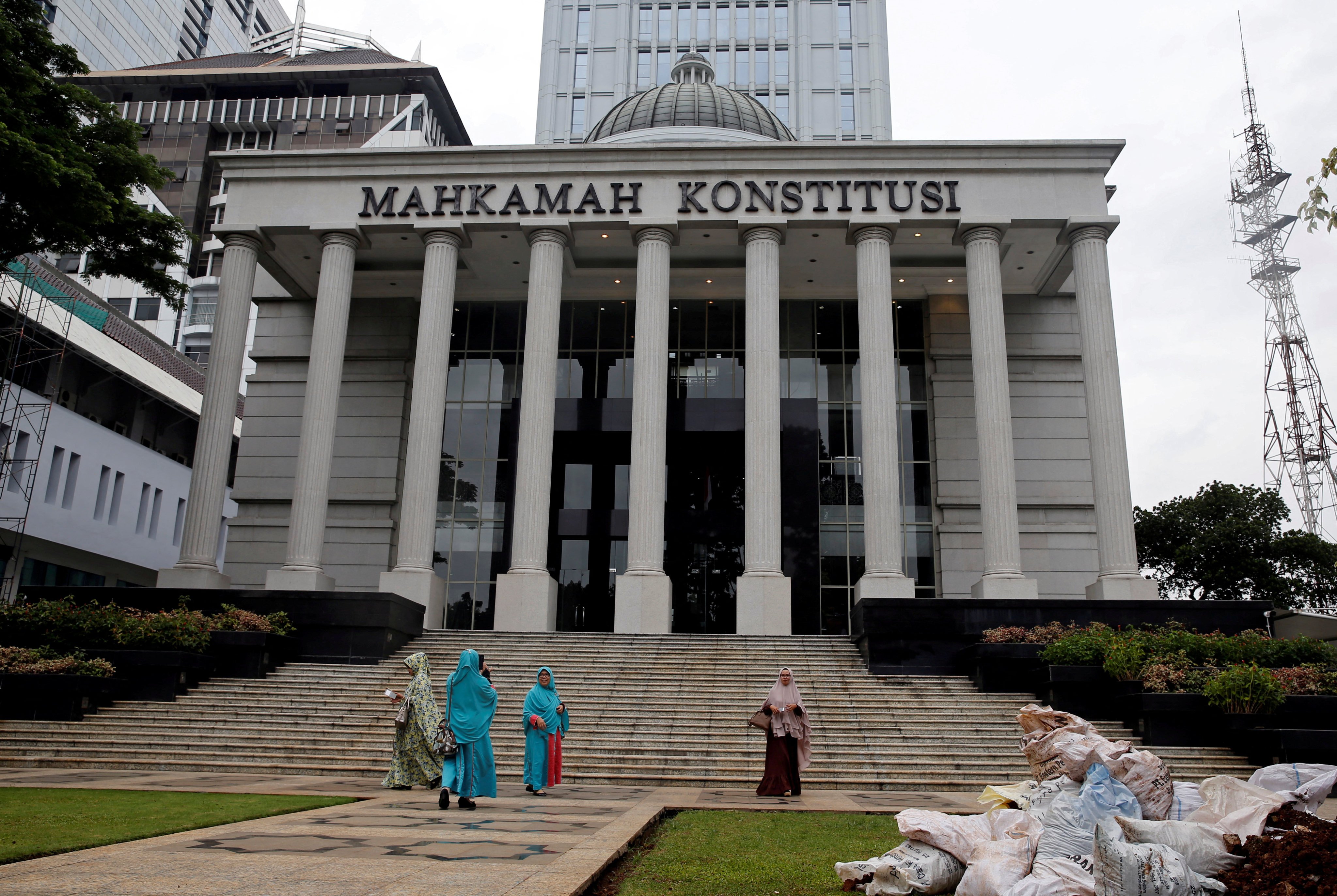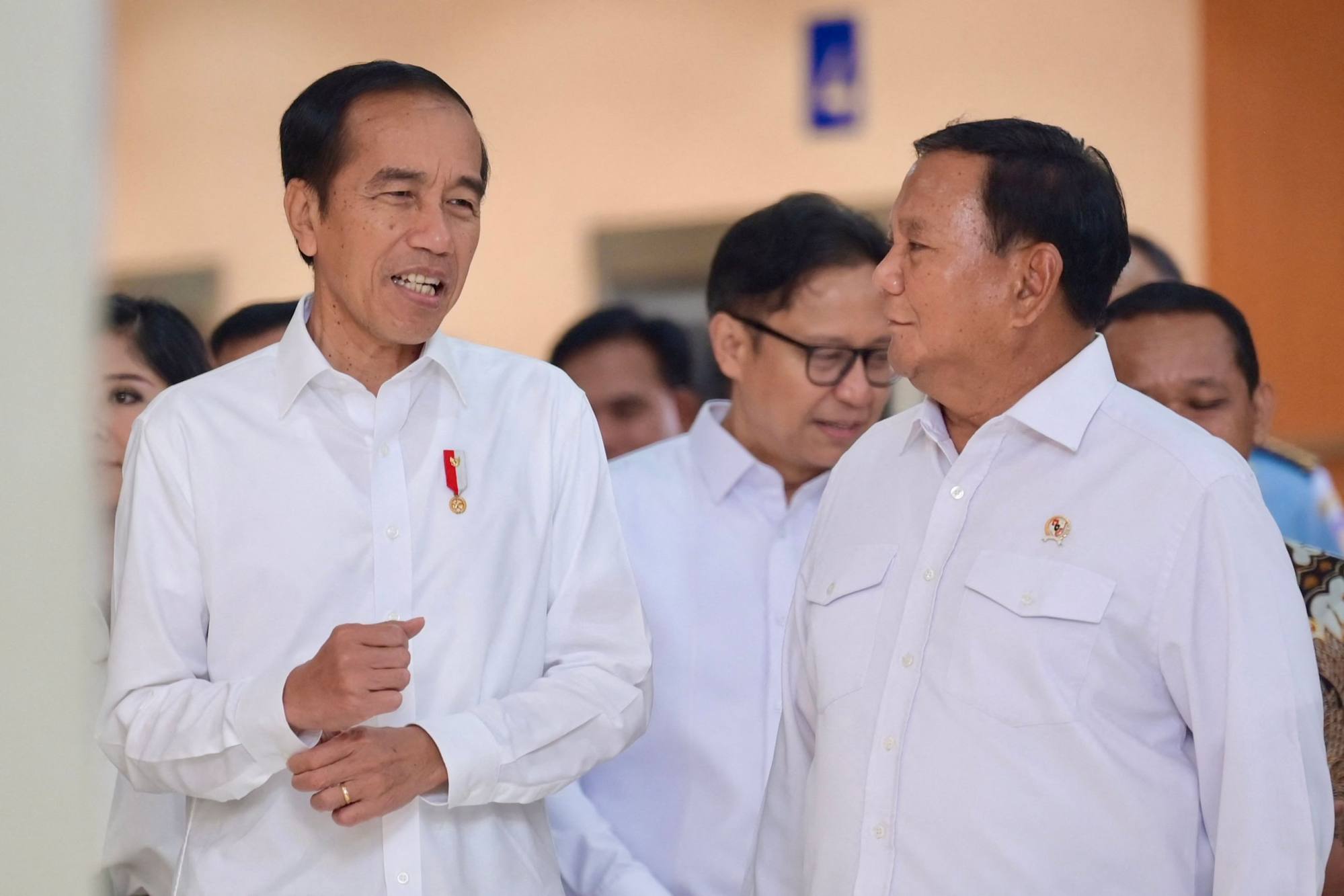Victory for free speech in Indonesia as court curbs defamation law
Public officials and corporations can no longer sue critics for defamation under the Electronic Information and Transaction (ITE) Law

A landmark court ruling in Indonesia barring public officials, groups and corporations from filing defamation suits against their critics has been hailed by rights groups as a step forward for free speech – though concerns remain over other laws still used to suppress dissent in the world’s third-largest democracy.
On April 29, the Constitutional Court partially granted a petition by environmental activist Daniel Frits Maurits Tangkilisan, who had challenged a controversial defamation provision in the country’s Electronic Information and Transaction (ITE) Law.
Critics have long argued that the law is too broad and has been used to stifle public criticism of those in power.
Tangkilisan was sentenced to seven months in prison in April last year over Facebook comments criticising the environmental impact of a shrimp pond development in the Karimunjawa Islands, off the northern coast of Central Java. Local residents filed the complaint collectively, saying they were offended by Tangkilisan’s posts, leading to his prosecution under the ITE Law. He was later acquitted on appeal.

In its ruling last month, the Constitutional Court stated that defamation charges under the ITE Law could only be brought by individuals, not by “government agencies, groups of people with specific or particular identities, institutions, corporations, professions or positions”.
Judge Arif Hidayat said criticism was “a form of supervision, correction, and suggestions regarding matters relating to the interests of the community”.
“The restriction of the right to freedom of opinion and expression will actually erode the control or supervision function which is a necessity to prevent abuse of power in the administration of government,” he said.
Another often used article in the ITE Law includes a prohibition against distributing hoaxes that could incite a public riot. The court clarified that “riot” referred to a physical riot, not in the digital space, so any content that sparks uproar on social media did not constitute a criminal offence.
The Constitutional Court’s rulings are legally binding and effective immediately in Indonesia.
State Secretary Prasetyo Hadi said the Court’s decision was “good news for freedom of speech” in Indonesia.
Prasetyo underlined that freedom did not mean that anyone could “convey anything that does not respect other parties, [post] hateful [content] and other negative things”, adding that the government would heed the ruling.
National Police spokesman Trunoyudo Wisnu Andiko told reporters that police would “adapt, adjust, and follow the Constitutional Court’s ruling”.

‘Partial win’
Rights activists welcomed the Court’s verdicts but warned that they did not necessarily stop threats to freedom of speech and expression.
The ruling was “an important step towards protecting online speech,” Human Rights Watch said in a statement last week, urging for the repeal of all defamation articles, as recommended by The United Nations Human Rights Committee.
In a statement, Amnesty International Indonesia demanded that the House of Representatives “revise the defamation article to close the loophole for anyone to misuse it to silence criticism in society”, adding that defamation charges should be resolved in a civil lawsuit.
According to Amnesty, between 2019 and 2024, there were at least 530 cases of criminalisation of freedom of expression under the ITE Law, involving 563 people. The National Police’s cyber division filed the most lawsuits, 258 in total, followed by those from regional governments.
The ITE Law is often used to [muffle] freedom of speech and other expressions by environmental and rights activists. This is a victory for allRaynaldo Sembiring, environmental activist
Raynaldo Sembiring, executive director at the Indonesian Center for Environmental Law, a Jakarta-based non-profit that advocates for environmental justice, said the rulings were “positive things that deserve to be appreciated”.
“The ITE Law is often used to [muffle] freedom of speech and other expressions by environmental and rights activists. This is a victory for all,” Raynaldo told This Week in Asia.
Hafizh Nabiyyin, head of freedom of expression division at the Southeast Asia Freedom of Expression Network, said the ruling was “a partial win” for democracy, but questioned why defamation articles still existed in the country’s laws.
“The Constitutional Court tightens the interpretation of defamation, but the problem lies in law enforcement such as the police and the prosecutor’s office, who still view defamation as a criminal act,” Hafizh said.
In recent years, law enforcement has been using other articles in ITE Law, aside from defamation, to criminalise critics, he added.
On May 6, a college student in West Java was arrested after posting an AI generated viral meme featuring current President Prabowo Subianto kissing his predecessor, Joko Widodo. She is charged with distributing indecent material and manipulating electronic documents, and faces 12 years in prison if found guilty. Her case is ongoing, though she was released from detention on May 11.

Amnesty said her arrest was “contradicting” the latest Constitutional Court ruling, which stated content that upset online users was not considered a criminal offence.
“The police’s defiance of the Constitutional Court ruling reflects the authorities’ repressive response in the public space,” the group said in a statement.
According to Hafizh, the new criminal code, which will take effect next year, will be another threat to freedom of speech in Indonesia.
“In the new Criminal Code, in addition to the article related to defamation, there is also an article about insulting the president and state institutions. It is very dangerous because it prohibits insults or criticism against government officials,” he said.